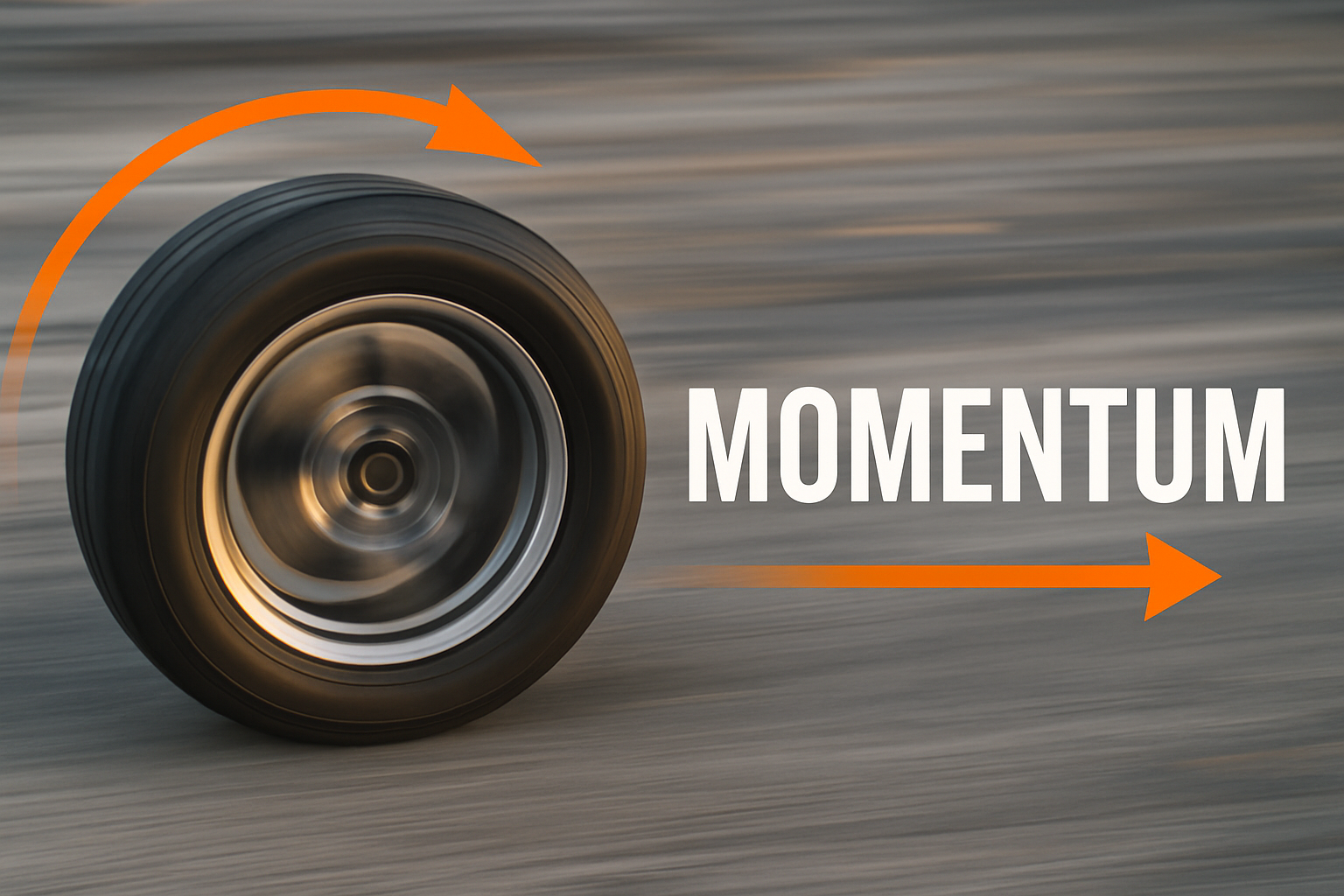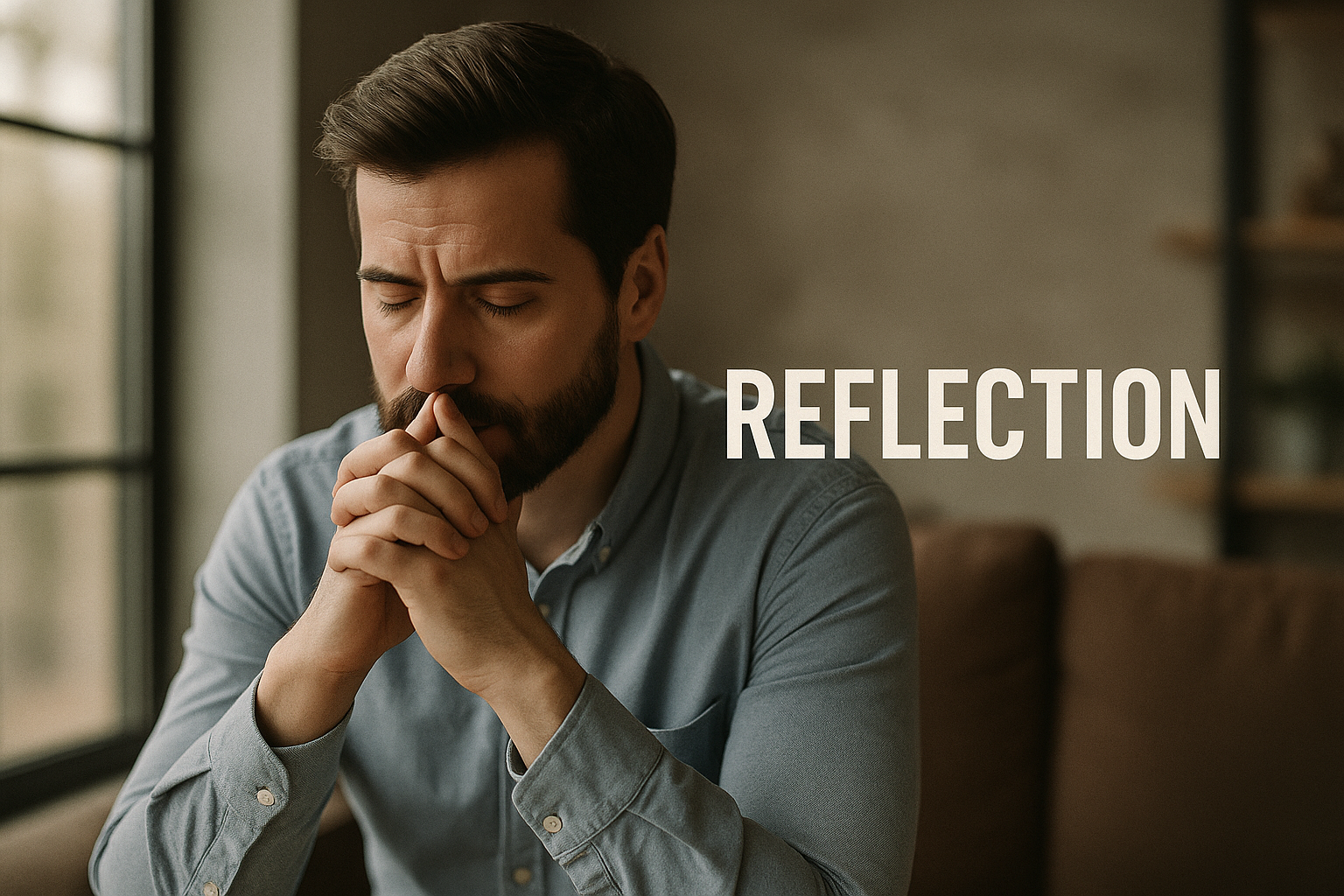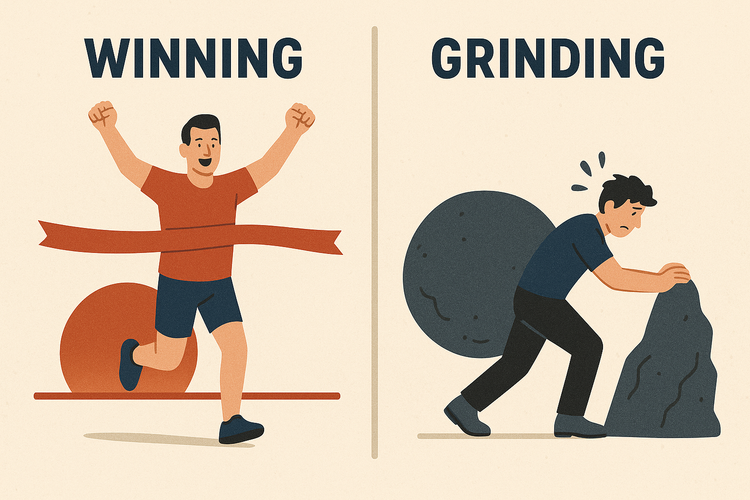Reset Before You Run

“Recovery isn’t a bonus round. It’s the first line of code in any high‑performance system.”
A Courtside Gut ‑ Check
Antalya, Turkey, 2013. Scorching heat. Clay court season. I’m coaching an up-and-coming player on the Futures Tour.
Thanks for reading Beyond The Peak! Subscribe for free to receive new posts and support my work.
Everything was hanging in the balance: his results, his sponsorship, his future. And it was my last tour as a performance coach in tennis.
What I didn’t realize then: this trip would reset more than just him.
The morning before a key match, he wakes up flat on his back, man down. Viral infection. Flu symptoms. Dehydrated. Shot.
In between phone calls with his mother and sister, I head out for meds. I come back, hand him water and meds. He looks wrecked.
Him: “I can’t stop now. This is it. I need to keep going, but I don’t know how.”
Me: “You can push through and crash then this tour ends here. Or we stop, recover, rebuild your immune system, and come back stronger.”
We took a 48-hour shutdown: light bike, core work, stretching, hydration.
He came back with a vengeance. Not only competed, but made the finals in the next two tournaments and won one of them.
And me? That tour became my last. Because while he bounced back, I was between a rock an a hard place. This was one final performance coaching trip while I was busy establishing a new business while I haven’t taken any time to reset myself.
Momentum begins with a reset.
Why Winners Cycle, Not Grind
Federer disappears for a month post‑Wimbledon. Serena built her post‑pregnancy comeback on micro‑blocks of load and unload. Djokovic schedules yoga‑and‑cold‑plunge days during Slam fortnights. They’re not soft, they’re systematic.
The physiology backs them up. We’ve known it since Hans Selye’s stress‑adaptation curve (1956):
stimulus → dip → recovery → super‑compensation.
Modern data says the same thing—just with fancier dashboards:
- Harvard Sleep Lab (2023): CEOs sleeping <6h had 30% more strategic errors.
- Dr. Sam Marcora (2019): Mental fatigue recovers fastest with complete detachment.
- Loehr & Schwartz (HBR, 2001): Energy oscillation—not time—is the true productivity driver.
Grinding doesn’t prove grit. It just proves we ignored biology.

The Momentum Flywheel We’re Building
Over the next twelve weeks we’ll bolt together six spokes:
Reset → Rhythm → Identity → Flywheels → Leverage → Legacy
Today we start with spoke #1. - RESET
What Qualifies as a Reset?
A reset is:
- Declare‑it
- Design‑it
- Defend‑it.
Anything less is a coffee break with better branding.
🚫 The Imposter Reset:
Slack off, but Phone on = Cortisol rising.
Netflix past midnight. Zero boundaries. Inbox in your pocket.
✅ The Real Reset:
Calendar block marked OFF. Phone in airplane mode.
Eight hours of sleep bookended by light mobility.
Delegated decisions. Digital blackouts. Real rest.
No one gets fitter by lifting nonstop. You don’t scale by sprinting every week.
The 24‑Hour Micro‑Reset Protocol
- DECLARE. Post in Slack. Text your spouse. Say it out loud:
“Reset: Friday 18:00 → Saturday 18:00. Emergencies = call.” - DESIGN your inputs.
• Move: easy swim / walk / yoga
• Fuel: whole foods, 3 L water
• Reflect: 20 min journal + 10 min prayer/meditation
• Sleep: 8 h night + optional 30‑min nap - DELETE distractions. Airplane mode. One 15‑min check window max.
- DEBRIEF. Next morning, rate Energy & Clarity (1–10).
20‑Minute Practice:
The Stress ↔ Recovery Scorecard
Grab the Coda template (link below).
Rate your last 30 days on five stress and five recovery variables. Plot them. If stress outpaces recovery by > 25 %, book a reset in the next seven days AND before you close the tab.
Timer Tip: Set a 20‑minute countdown. Momentum loves a finish line.
Sleep: The Hidden Lever of Performance
When athletes sleep, they don’t just recover, they adapt. Muscle repair, cognitive processing, emotional regulation; it all happens while the world is quiet and the phone is off.
Roger Federer reportedly sleeps 10–12 hours per night in-season. LeBron James clocks 8–9 hours with an afternoon nap. Why? Because performance doesn’t just demand rest. It compounds it.
Founders, meanwhile, often treat sleep like a suggestion or even worse wear it like a badge of honour if they pull all nighters or haven’t slept more than 4 hours a night in weeks. But your prefrontal cortex the part of your brain responsible for decision-making, creativity, and emotional control has zero loyalty when sleep-deprived.
A Harvard Sleep Lab study found that decision accuracy among CEOs drops by 30% when sleep dips below six hours. You don't just lose sharpness. You start second-guessing. You react instead of responding. You flip strategy too fast or cling to it too long.
Put simply:
Is sleep your performance multiplier?
or
Is it your silent saboteur?

Take 5 minutes. Your answers here are more important than your Monday meeting.
- When did you last hit a full reset?
- What early‑warning light blinks first for you? 1) body, 2) mood, or 3) margins
- Biggest obstacle to a 24‑h reset this week and how will you disarm it?
- What will it cost you on the long run if you don’t make space for a regular reset?
If you are interested in a worksheet to work through this, please send me a message below
Further Food for Thought
- HBR: “The Making of a Corporate Athlete” (Loehr & Schwartz, 2001)
- Roger Federer Dartmouth Commencement 2024
- Tudor Bompa on Periodisation (paper)
- Harvard Magazine - Sleep Deprivation
Next Up …
May 26: “The Rhythm Dividend.” We’ll turn the reset into a repeatable weekly cadence that returns more energy than it costs.
Protect your space. Then hit the gas.
Until next time,
Jaco
Thanks for reading Beyond The Peak! Subscribe for free to receive new posts and support my work.



